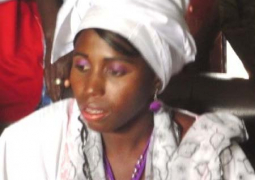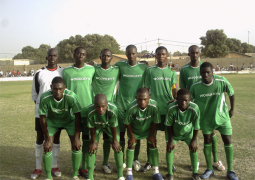THE SUM OF ALL SORROWS: CHILD SOIDIERS
Throughout history and in many cultures, children have been extensively involved in military campaigns or acts of varying types, even when such practices were supposedly against cultural morals and international human rights. Unfortunately, this unbecoming practice is still in full force today, especially in countries where such inhumane practices would have been thought to be a thing of the sordid past.
Children, the young seedlings of the future have been in some cases recruited and in other cases forced into becoming soldiers of conflict. In this capacity, voluntary or forced, they are exposed to situations and horrendous acts of violence (murder, torture, theft, kidnapping, rape) that mar them for the rest of their lives. These scarred seedlings who had the opportunity to enjoy innocence and develop as normal kids taken from them, go on to be much more scarred older individuals. What sort of life will they hope to have or give to their offspring? It is merely the beginning of a vicious cycle of violence and crime, a heart break. The sum of all sorrows.
Over the years a number of international conventions have come into effect that try to limit the participation of children in armed conflicts, nevertheless the Coalition to Stop the Use of Child Soldiers reports that the use of children in military forces, and the active participation of children in armed conflicts is widespread. The United Nations Convention on the Rights of the Child proclaimed: "State parties shall take all feasible measures to ensure that persons who have not attained the age of 15 years do not take a direct part in hostilities."
The Optional protocol on the involvement of children in armed conflict to the Convention effected in the earlier part of this decade states that its State Parties "shall take all feasible measures to ensure that persons below the age of 18 do not take a direct part in hostilities and that they are not compulsorily recruited into their armed forces and take all feasible measures to prevent such recruitment and use, including the adoption of legal measures necessary to prohibit and criminalize such practices."
The United Nations Security Council convenes regularly to debate, receive reports, and pass resolutions under the heading "Children in Armed Conflict". The Parties to the conflict shall take all measures in order to prevent all kids/minors (fifteen years and under) are not actively and directly involved in hostile accts in areas of conflict. They must refrain from engaging/recruiting such children into their armed forces or any un-organized force (rebel movements)
In recruiting individuals over fifteen but who have not attained the legal age of voluntary enlistment, priority was to be given in order of seniority, the oldest being taken first. In terms of the Worst Forms of Child Labour Recommendation ratifying countries should ensure that forced or compulsory recruitment of children for use in armed conflict is a criminal offence, and also provide for other criminal, civil or administrative remedies to ensure the effective enforcement of such national legislation .Opinion is currently divided over whether children should be prosecuted for committing war crimes.
International law does not prohibit the prosecution of children who commit war crimes, but United Nations Convention on the Rights of the Child does limit the punishment that a child can receive including "Neither capital punishment nor life imprisonment without possibility of release shall be imposed for offences committed by persons below eighteen years of age."
One of the most notorious cases of the involvement of children in conflict in the capacity of Child Soldiers is the Civil war in Sierra Leone. This conflict is quite notably one of the most vicious and tragic conflicts in Africa, with thousands of lives lost and insurmountable crimes against humanity committed, some of whom and which were to and by children.
In its wake, the UN sanctioned the Special Courtfor Sierra Leone (SCSL) to try the participants for war crimes and other breaches of humanitarian law. The presiding court was given jurisdiction over persons over the age of fifteen. However, it was further decreed that such children were in addition to being charged, they should be considered also as victims of offences against human laws.
Special Courtfor Sierra Leone (SCSL) to try the participants for war crimes and other breaches of humanitarian law. The presiding court was given jurisdiction over persons over the age of fifteen. However, it was further decreed that such children were in addition to being charged, they should be considered also as victims of offences against human laws.They must be dealt with in terms of restorative justice and social rehabilitation. All of which are consistent with laws that offer children special protection.
In terms of voluntary recruitment of children into organized forces (the national army, navy etc, etc), different countries have differing
In the Gambia, the minimum legal age for enlisting into the military is eighteen and this is the case in many countries. In the United States seventeen year olds may join the armed forces, but may not be stationed outside or deployed in combat situations. It is said that males under eighteen years of age are not draft eligible, and females are not eligible for conscription at any age. At one point in time, it was reported to the Human Right Watch that a number of people under the age requirement had been deployed for combat in Iraq, an accusation which was admitted and reported to be swiftly rectified.
The act of using children as active combatants is a culture that has been practiced since medieval time and greatly noticed and recorded in the 20th Century, especially during the 1st & 2nd World Wars boys as young as 13 were caught up in the overwhelming tide of patriotism and in huge numbers cheerfully enlisted for active service others to avoid the harsh and dreary lives they had working in British industry. Many were to serve in the bloodiest battles of the war. This was evident in Germany and in the Soviet Union.
During the Holocaust, Jews of all ages, including teenagers participated in the Jewish resistance simply in order to survive. Many members of the youth movement Hashomer Hatzair fought in the Warsaw Ghetto Uprising of 1943.
The use of child soldiers has survived for centuries. It is now time it was put to rest. Children are being robbed not only of their innocence but also of a future they have a right to. It is constantly preached that the children of today are the future of tomorrow, but what sort of leadership will they demonstrate later in life when the horrors they encountered in the past still haunts them?
Now is the time for everyone one of us to stand up against the use of children in wars. Surely every one of us can bring something to the table? Always remember, a joint effort makes a big difference. Let us all heal the world together as one people. The gift of innocence is one that every child deserves to have.



